bISMETHE
THE BUSINESS OF IRISH SME s
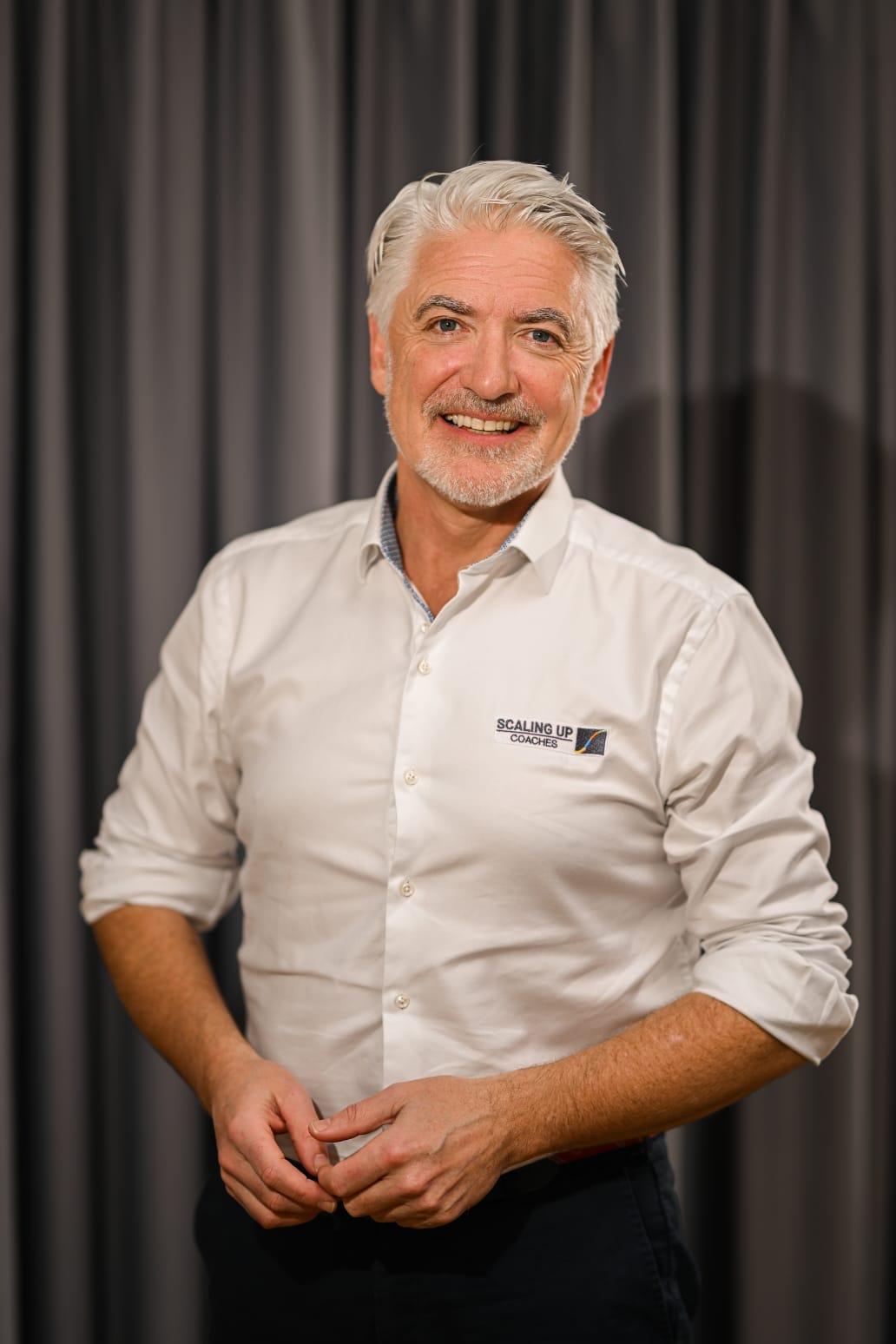
From Park Lane to Park Bench and Back Again: A Journey of Entrepreneurial Resilience and Scaling Up.
An interview with Brian Keegan
ISME at work for you
ISME spearheads campaign to Save Jobs.
HR Focus
Absence Management - what you need to know.
Technology Focus
Preparing your businesses for a new era in cybersecurity.
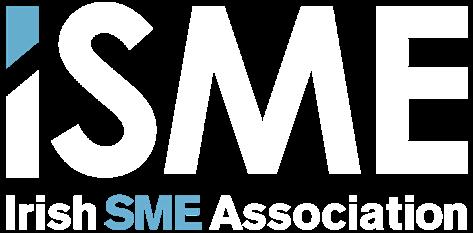
Volume 1 Issue 24 SPRING 2024


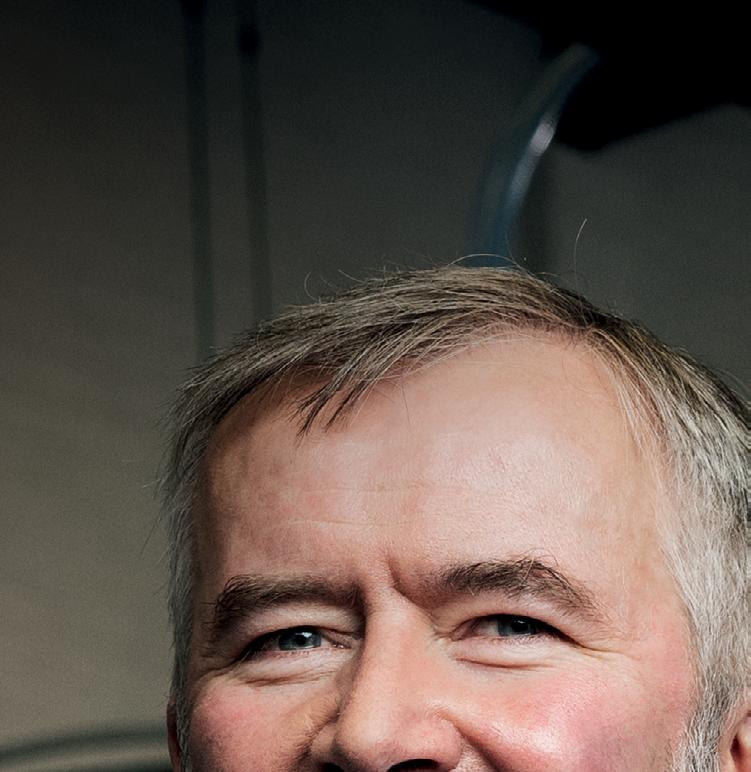
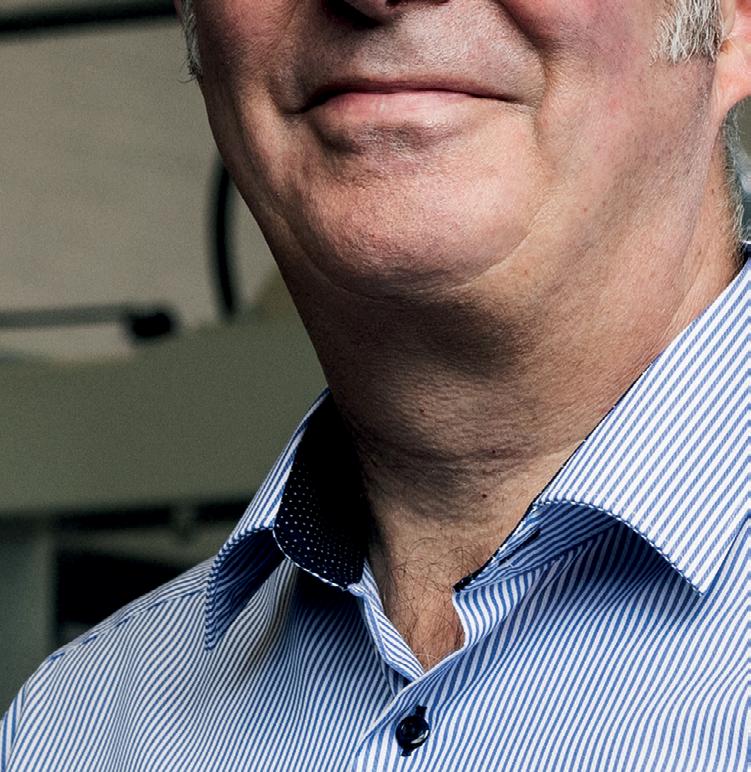
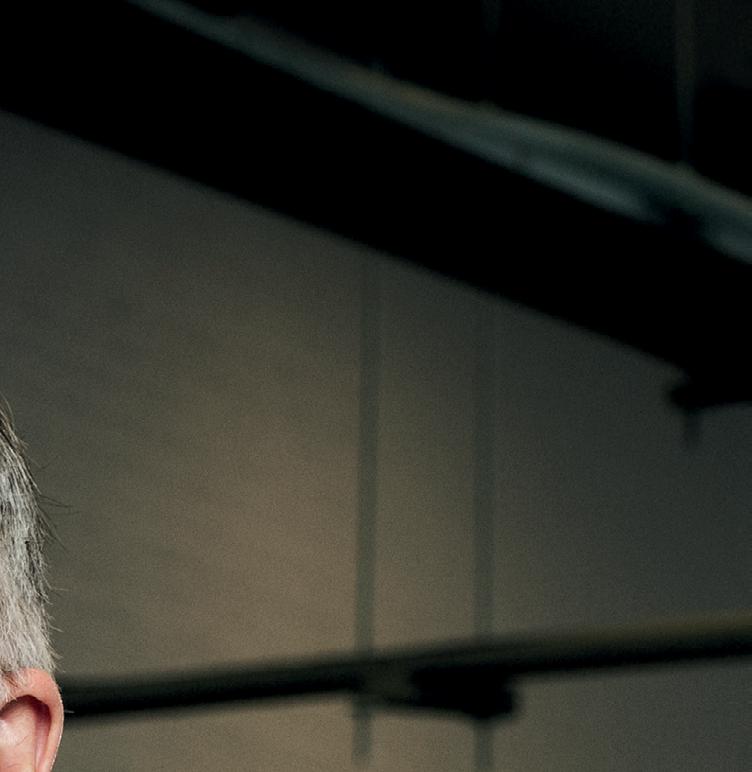
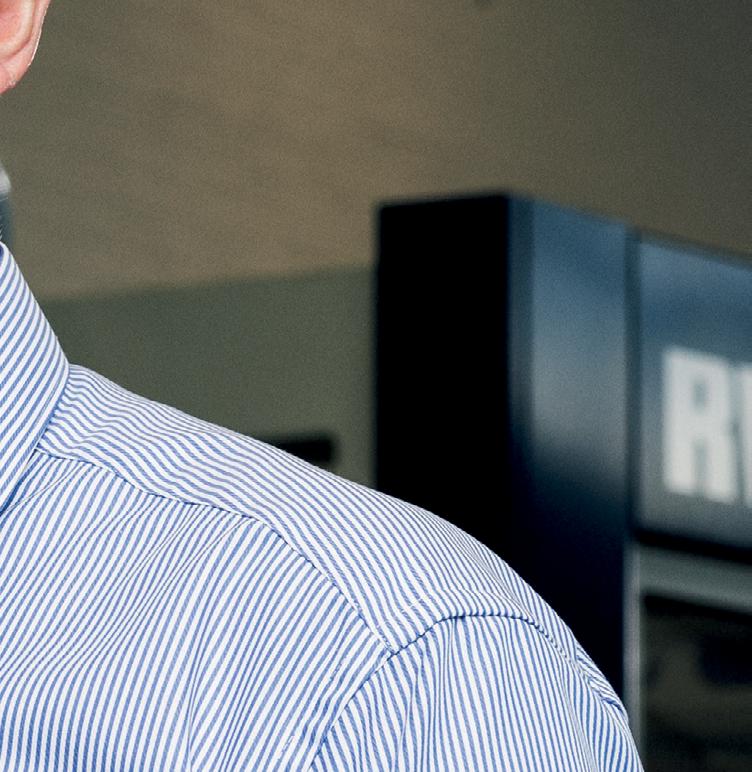



Save time, money and energy














It’s all in a day’s work with your Local Enterprise Office

We know that for small businesses, every day is a busy day with new challenges – but with the help of your Local Enterprise Office, staying competitive and becoming more productive is much easier.



We have a range of business supports to help you save time, money, and energy. Find out more at allinadayswork.ie






 John Mulleady, AiP Thermoform
John Mulleady, AiP Thermoform
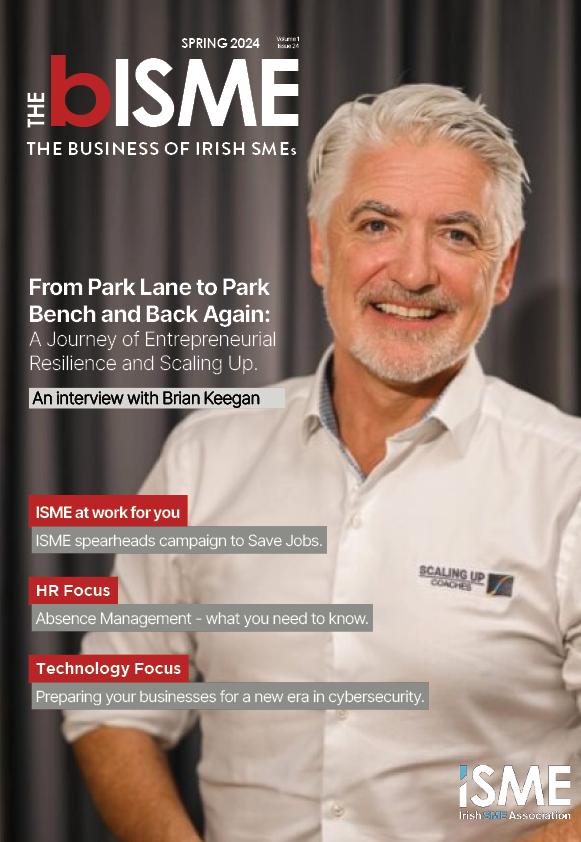
Volume 1 Issue 24 SPRING 2024


CONTENTS
4. A Message from the Chief Executive: ISME CEO Neil McDonnell discusses rising labour costs.
20. Marketing Focus: How you can use voice search optimisation to drive traffic to your website.
17 Kildare Street, Dublin 2, Ireland.
Phone : (01) 662 2755
E-mail: info@isme.ie
Web: isme.ie
Published by iSME
Editorial: gopika@isme.ie
Design: ciara@cnocii.ie
Advertising: marketing@isme.ie
The bISME is the official publication of ISME. Individual views expressed in the magazine do not necessarily constitute ISME policy. Although every precaution has been taken in the preparation of this publication, the publishers assume no responsibility for errors or omissions. Copyright The bISME 2019. No part of this publication may be reproduced in any material form without the express written permission of ISME.
6. ISME at work for you: ISME spearheads campaign to Save Jobs.
8. The b News: News and updates for business.
12. The b Interview: The bISME chat to Brian Keegan from ScalingupGlobal.com about how he uses his mistakes and his experience to guide business leaders.
16. HR Focus: Absence Management - what you need to know.
18. Member Focus: A look at two ISME member businesses.
19. Learning Focus:
All you need to know about a new micro-credential fee subsidy launched recently.
22. Heath & Safety Focus: How can you protect Protecting vulnerable workers in the workplace.
24. Technology Focus: Preparing your businesses for a new era in cybersecurity.
25. Learning Focus: ISME Skillnet look back at 2023 and discuss the importance of upskilling in 2024.
26. Business Focus: The importance of employee engagement in 2024.
28. Member Focus: A look at another ISME member business.
29. Energy Focus
Starting off on the energy efficiency journey
31. Another side of…. Damien Heffernan, Marketing & Partnerships, ISME
8. 29. bISMETHE Contents
IBEC proposals are too little, too late....
Colleagues,
As I noted in December, the adjustments to labour costs were likely to prove extremely difficult for many retail, services and leisure businesses to bear, and so it has proved.
There appears to have been a belated recognition that the accumulation of so much extra cost on small business is costing jobs and closing businesses, but Government appears blinded in the headlights and has yet to assert a grip on the situation. While Minister Coveney and some others have voiced support for a return of the 9% VAT rate in the food services sector, this will not be enough to protect viable but vulnerable businesses elsewhere.
While ISME welcomed the recent IBEC meeting on labour costs, the IBEC proposals which followed are too little, too late. They are not radical enough to tackle the serious situation in which many businesses find themselves.
IBEC proposed:
• A pause to all cost-increasing labour policy measures.
• An impact assessment of increased labour costs on business by Q2 2024.
• A ‘Competitiveness Charter’ setting an annual ceiling on the total amount of additional labour costs.
• A PRSI rebate for the companies most exposed to addition labour costs.
From ISME’s perspective, (1) makes sense; measure (2) was meant to have been published in October, we see no reason to delay publication further; measure (3) is entirely meaningless without hard metrics to drive it; and while a PRSI rebate as in measure (4) would be welcome, we have to ask ourselves if businesses can’t afford social insurance payments, doesn’t this mean Government is driving wages artificially high?
This is not meant as criticism of IBEC: They cannot advocate the necessary measures for small business when they are bound by the policy needs of their membership, composed mainly of multinational business, universities, public sector bodies, HSE Hospital Groups, and semi-state companies such as Coillte, Bord na Móna and the ESB.
 Neil McDonnell, Chief Executive, ISME
Neil McDonnell, Chief Executive, ISME
ISME recognises the need for more radical measures:
• Labour costs are rising faster than consumers and businesses can absorb them. The minimum wage should not rise faster than the rate of inflation (currently 4.1%).
• The interest-free repayment of warehoused Revenue debt must be extended to all Revenue debt incurred in the last four years.
• The 8.8% employer’s PRSI rate must cover the full NMW, i.e. increase the 11.05% threshold from €441 to €495.30pw.
• If fiscal rules restrict State spending on enterprise and labour training while there is a surplus in the National Training Fund approaching €2bn, then the Training Levy of 1% should be temporarily suspended, and the surplus wound down.
• For businesses where Government regulates or caps the cost of goods or services, that cap must flex to allow recovery of the increased costs imposed by Government.
• The methodology for calculating an “adequate” minimum wage must reflect the fact that 48% of Irish workers are employed either by a multinational or by the State- both of which have far higher earnings than most private sector workers. Their earnings must be discounted from Low Pay Commission calculations.
Our ISME FINANCE FINDER continues to go gangbusters! It is good to know that there is still some demand for credit out there- especially longer-dated finance. If you need money, go to the Finance Finder First!
I’m delighted to say that our rescheduled 30th Anniversary Lunch was a great success! We were able to welcome almost all our November guests on 22nd March. I would like to extend my thanks to all our attendees, Special guest speaker Colin Judge, comedian Barry Murphy and our sponsors - Fexco, Tara Slevin, Lily O’Briens, .ie, ISME Skillnet, Gunpowder Irish Gin, Corporate Enforcement Authority and Tier 3 Tech on behalf of our Chair Marc O’Dwyer, the National Council, and the executive team here in Kildare Street, for your invaluable contributions and attendance, which helped us create an unforgettable experience and furthered our mission of supporting Irish SMEs.
Neil McDonnell
A Message from the Chief Executive 4
THE BUSINESS OF IRISH SME
s

Long-Term Low-Cost Finance for Irish Businesses, Farmers & Fishers Growth and Sustainability Loan Scheme
The Growth and Sustainability Loan Scheme supports strategic investments in the growth and resilience of the business or in environmentally friendly technology with long-term low-cost finance up to €3 million.
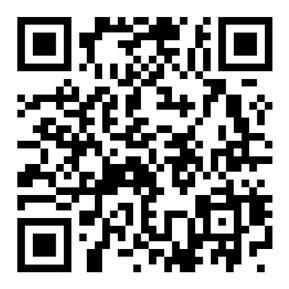
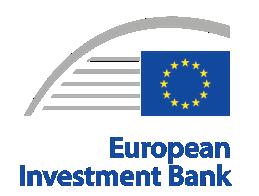
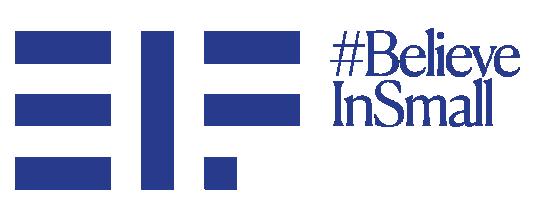
Loans from €25,000 to € 3 million at reduced interest rates, with terms from 7 to 10 years. Loans up to €500,000 unsecured. Terms and conditions apply. Find out more at
sbci.gov.ie
ISME spearheads campaign to Save Jobs
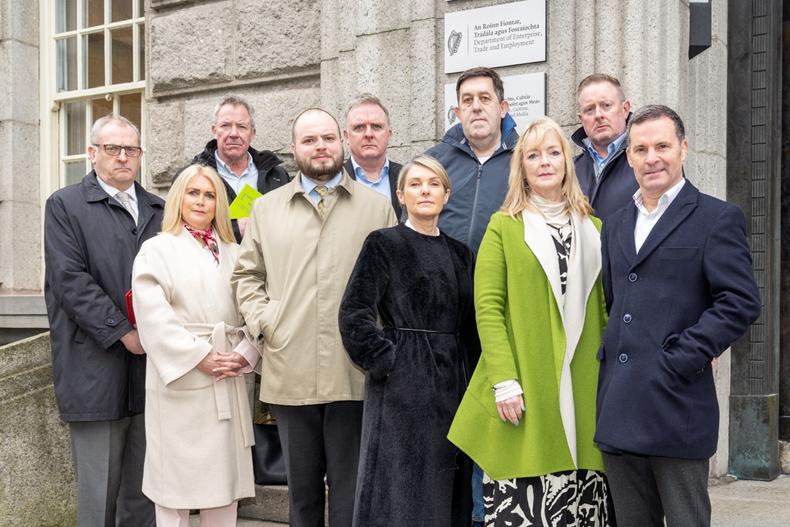
National Minimum Wage reform, tax reform, and industrial relations reform.
The 10,500 ISME members across Ireland represent a diverse array of individual SMEs and leading affiliated trade organisations. The campaign emphasises the urgent need for reform in various areas affecting the SME sector.
National Minimum Wage Reform
One of the primary concerns addressed by the campaign is the method of calculating the National Minimum Wage (NMW), which disproportionately affects SMEs. Our CEO Neil McDonnell highlights the disparity between wages in SMEs compared to large firms and the public sector. He emphasises the necessity of not benchmarking SME pay against public sector wages, calling for future NMW increases to be capped at the Consumer Price Index and for the application of the 8.8% rate of PRSI to the entirety of the NMW.
Representation on Economic Forums
The lack of proportional representation for SMEs on key economic forums such as the Labour Employer Economic Forum (LEEF) and the Low Pay Commission is another pressing issue addressed by the campaign. Despite SMEs constituting 99.8% of total businesses and employing 60% of workers in Ireland, they are underrepresented in decision-making processes. ISME is insisting that SMEs must have pro-rata representation on these forums, demanding fair treatment and recognition from the government.
stark contrast in funding compared to other sectors. The campaign underscores the importance of recognising the vital role SMEs play in the economy and the necessity of implementing supportive policies to address existing deficits in support.
The SaveJobs campaign is dedicated to reducing the cost of doing business for Irish SMEs by advocating for regulatory easing and tax reduction. ISME, along with several other trade organisations and employee representatives, is spearheading this initiative. With the support of various organisations, the campaign aims to amplify the voices of SMEs in the political arena, particularly in the lead-up to national and local elections.
Among the organisations initially joining the SaveJobs. ie campaign alongside ISME are the Irish Hairdressers Federation, Restaurants Association of Ireland, Irish Hardware Association, Nursing Homes Ireland, Retail Excellence Ireland, Hair and Beauty Industry Confederation, Vintners’ Federation of Ireland, and Convenience Stores & Newsagents Association. These collective efforts underscore the unified stance of various sectors in advocating for the interests of SMEs and fostering a conducive environment for entrepreneurship in Ireland.
Join us today and make your voice heard! Sign the Pledge here.
6
ISME at work for
you
THE BUSINESS OF IRISH SME s
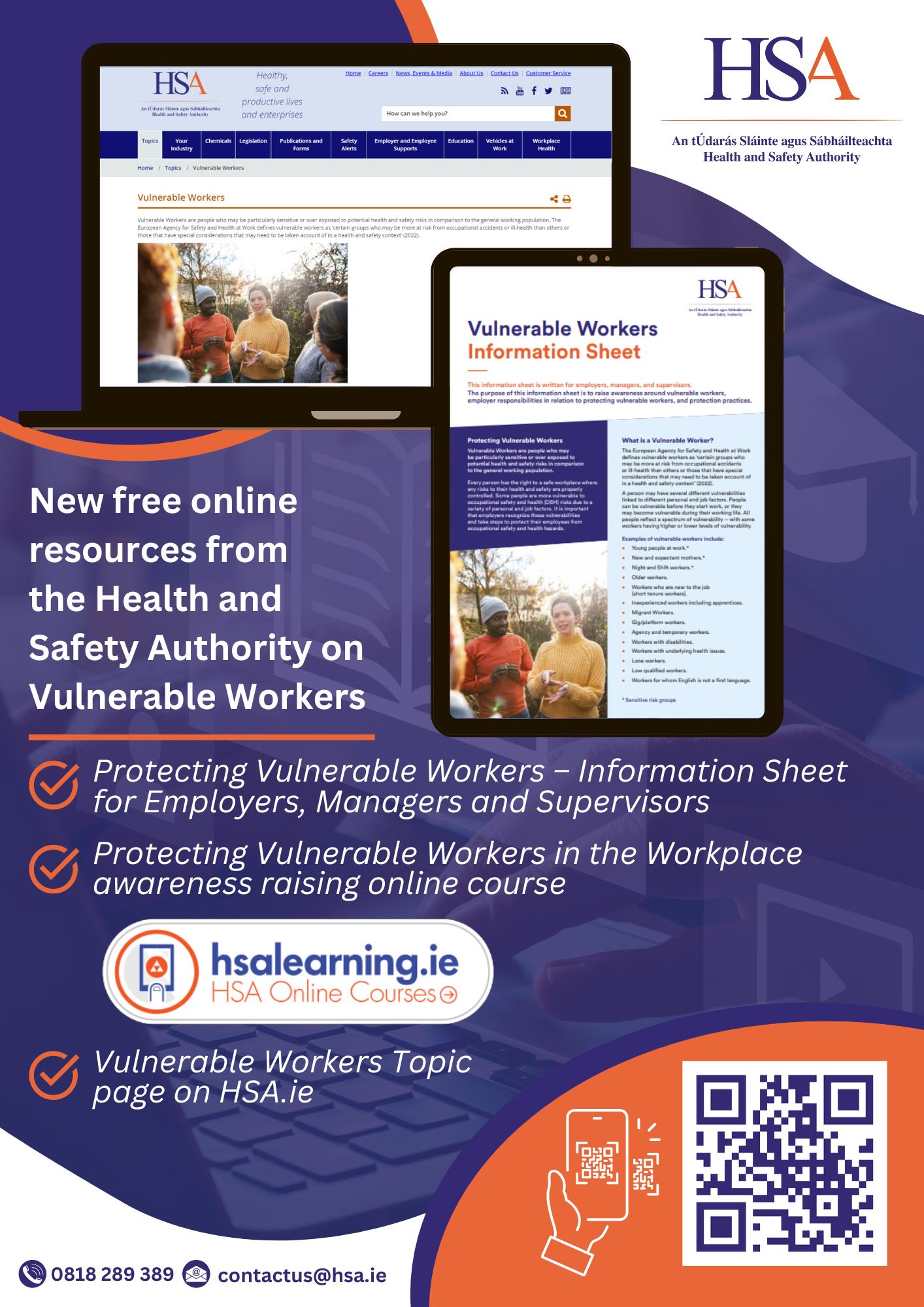
The b News
USEFUL EVENTS FOR SMES
National Menopause
Summit 2024 , Thursday 11th
April - Friday 12th April 2024. Aviva Stadium, Dublin, Book here
National Construction Summit 2024, Thursday 18th April , Sport Ireland Campus, Blanchardstown, Book here
Smart & Green Building Expo 2024, Thursday
18th April, Sport Ireland Campus, Blanchardstown, Book here
IBEC Employment Law Conference 2024, Thursday
18th April 2024, Dublin Royal Convention Centre, Book here
National Sustainability Summit , Tuesday 28th May -Wednesday 29th May, RDS Simmonscourt, Dublin, Book here
New Affinity Programme
Take a look at the most recent addition to the ISME ADVANTAGE Affinity programme from ISME Member business Me2You. Order over €5,000 and get €50 gift card free. Other offers include discounted acceptance rates while joining for all new ISME member merchants/retailers joining Me2You gift card.

Me2You is Ireland’s exciting multi-store gift card offering amazing choice with thousands of partner stores and many exclusive spending environments. It is brought to the market by Retail Excellence Ireland to help support the Irish retail industry and Irish jobs. It is welcomed by many fantastic & exclusive retailers such as Tesco, Smyths Toys, Applegreen, Avoca & thousands more nationwide.
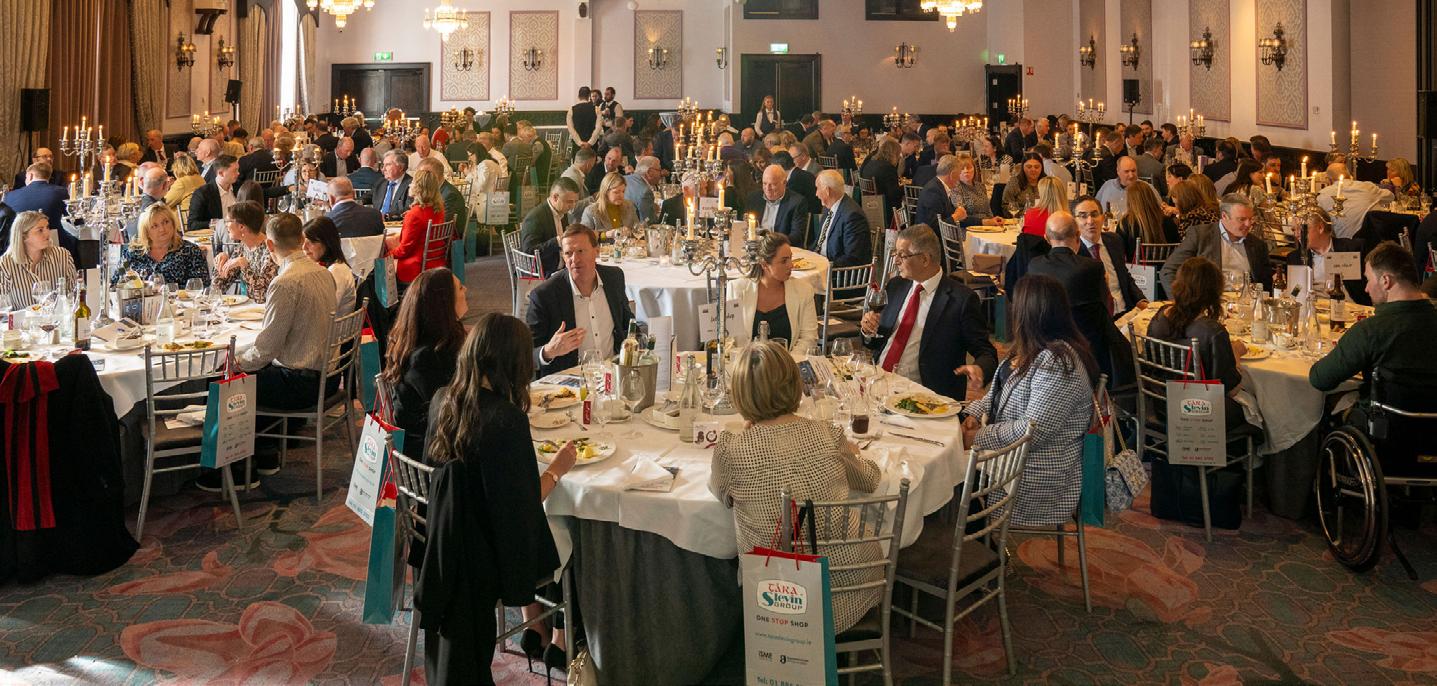
ISME 30th Anniversary Lunch- Finally A Great Success!
After our 30th Anniversary Lunch in November had to be abandoned due to a bomb scare, ISME finally celebrated the 30 years milestone at Clontarf Castle on Friday 22nd March. Attended by approximately 300 guests, the atmosphere buzzed with excitement as Paralympic Table Tennis Player, Motivational Speaker and Actuarial Analyst Colin Judge delivered an inspiring keynote address, igniting passion and motivation among attendees. Renowned comedian Barry Murphy provided a delightful “Après Lunch” entertainment following a four-course lunch.
ISME Chairman Marc O’Dwyer welcomed attendees who included ISME members, corporate guests, His Excellency Vincent Guérend the French Ambassador, Declan Hughes, Secretary General of the Department of Enterprise, and Aidan Finnegan, Public Affairs Manager with the British Irish Chamber.
The occasion also honoured the exceptional two-decade service of ISME Staff Member Ronan Rigney, recognising his invaluable contribution over the years. We would like to extend our gratitude to our sponsors on the day - Fexco, Tara Slevin, Lily O’Briens, .ie, ISME Skillnet, Gunpowder Irish Gin, Corporate Enforcement Authority and Tier 3 Tech for their invaluable contributions, which helped create an unforgettable experience for our guests and furthered our mission of supporting Irish SMEs.
To access the photo gallery of the day, please click here.
8



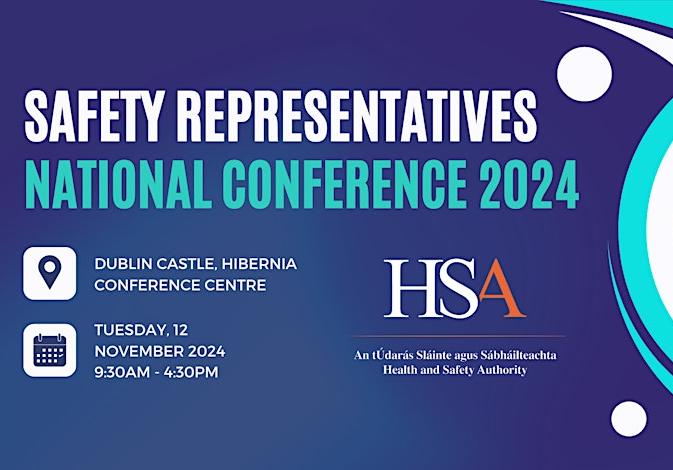
HSA hosting National Conference on Safety Representative
The HSA will be hosting a National Conference on Safety Representatives in Dublin Castle on the 12th of November 2024. All current Safety Representatives, employers, training organisations, instructors, professional health, and safety practitioners, those interested in occupational health and safety and anyone with occupational health and safety responsibilities are welcome to attend the conference. The conference will include keynote speakers, panel discussion and round table discussions.
Click here to book your spot and learn more.
Sound Matters: Occupational Noise
A new information sheet on occupational noise has been written for employers and employees to raise awareness and control the risk of workplace noise. It is applicable to all sectors. Sound matters - Occupational Noise
Guidance for Exposure to Sensitive Content
Psychosocial Risk Assessment: Guidance for Exposure to Sensitive Content has been developed by the Health and Safety Authority and the State Claims Agency. It was developed in order to assist organisations employing people in roles which expose them to sensitive content as part of their assigned duties or other employees who are unexpectedly exposed in their role. Exposure to Sensitive Content Risk Assessment Template was also recently developed by the HSA to support organisations employing people in roles which expose them to sensitive content.
New Healthy Workplace website recently launched
The Healthy Workplace Framework is a government strategy to enhance the health and wellbeing of Ireland’s workers. A committee led by the Department of Health and the Department of Enterprise, Trade and Employment oversaw the development of this Framework and set the strategic direction for workplace policies and programmes to enhance the health of workers.
A new Healthy Workplace website was recently launched and features interactive tools to facilitate the delivery and evaluation of health and wellbeing initiatives in workplaces of any size. This website aims to be the one-stop-shop for everything you need to make your workplace a Healthy Workplace It is designed to cater for the needs of public and private organisations and is targeted towards members of staff from Wellness/Health Promotion, Human Resources, Occupational Health, Health & Safety, decision-makers in senior management, and employees hoping to champion a Healthy Workplace.
Find out more on www.healthyworkplace.ie
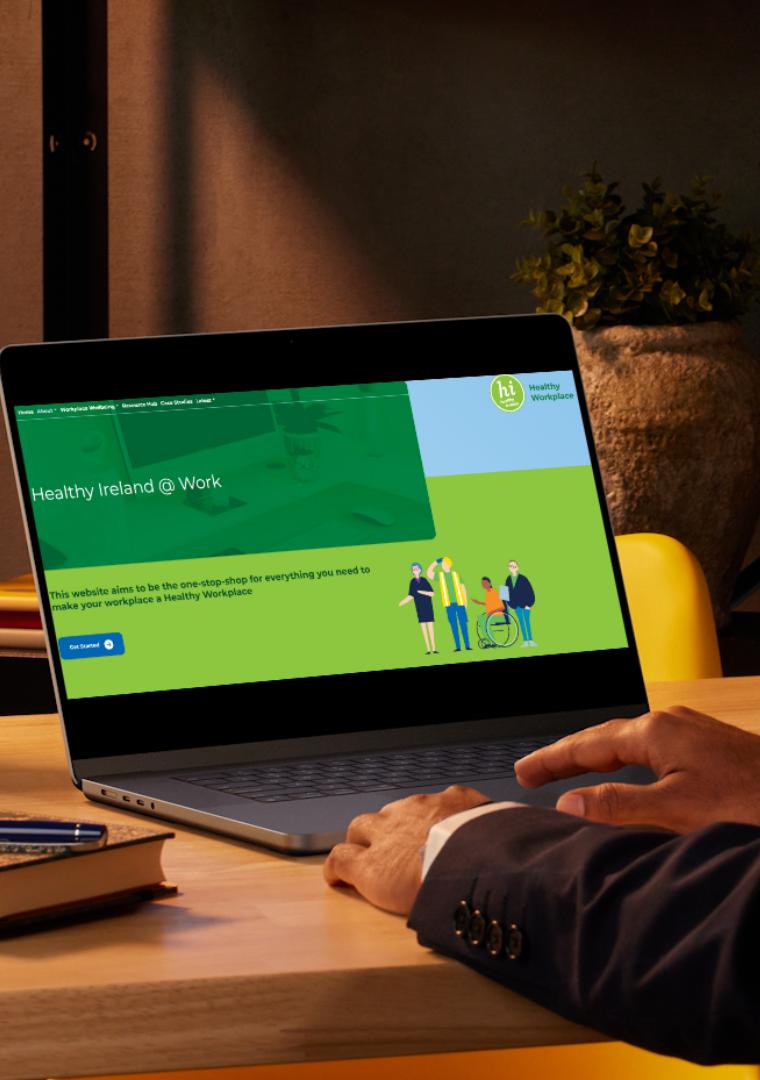
9 The b News
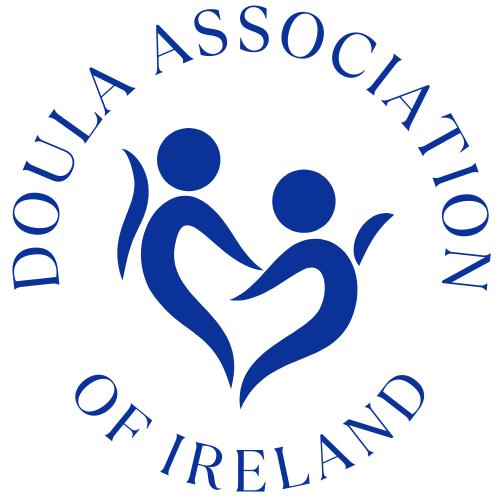
The Doula Association of Ireland CLG is a not for profit membership organisation that promotes the professional development, advancement & recognition of Doulas in Ireland.

Doulas provide continuous support for the whole family through pregnancy, birth, in the early days of parenthood and at many other stages of life.
Filling a role that new parents and families have always needed, we are there to listen, give confidence and evidence based resources in a non judgemental environment. Offering flexible, practical and emotional support in homes as well as in hospitals throughout the island of Ireland.
Doula Services:
Research studies have shown that continuous support from doulas during childbirth can be associated with:
• A decreased use of pain relief medication during labour
• A decreased incidence of C-sections
• A decrease in the length of labour
• A decrease in negative childbirth experiences
• Help reduce postpartum mood disorders
• Improve breastfeeding success
The Doula Association of Ireland CLG is an inclusive trade and professional organisation.

EMAIL info@doulas.ie CALL 01 556 3033 Find a Doula...
The Doula Association of Ireland
Antenatal Birth PostPartum Fertility Abortion Pregnancy Infant Loss Menopause End of life
Employee Assistance Programs & Wellness Initiatives

Research shows that promoting workplace wellness benefits such as physical and mental health has significant benefits for both employers and employees.
Family planning can be a stressful and anxious time. Our aim is to ensure that help is available so every unique journey into parenthood is safe, healthy and most importantly – happy.
Our Members Wellness Programmes can benefit employers by:
• Lowering health care costs
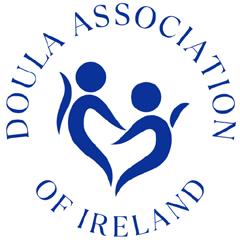

• Reducing extended leave and incidence of unpaid leave
• Providing employees with knowledge and support to thrive in the postpartum period, allowing them return to work with greater confidence and resilience
• Achieving higher employee productivity
• Improving employee morale and loyalty.
“With the support of doulas, many women are able to forego epidurals, avoid c-section births, and have less stressful births.”
Our members offer a range of services for employers to provide to staff, for example:
Single Support Sessions (Antenatal or Postpartum), 4 hours €150 Postpartum Package of 20 Hours (5 visits of 4 hours each) €700 Half day Workshops for groups of up to 12 €750 Pregnancy & Birth Journey Package €450 Birth Support Package €1,200 GIFT VOUCHERS To find out more about Members Corporate Packages EMAIL info@doulas.ie CALL 01 556 3033
b Interview
Brian Keegan, From Park Lane to Park Bench and Back Again: A
Journey of Entrepreneurial Resilience and Scaling Up
scalingupglobal.com
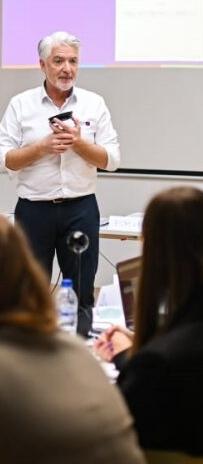
Please talk us through your career and what has led you to this point?
I was raised in Newbridge Co Kildare. My father ran a Hardware store in the middle of town where all seven of us kids used to work. As a kid, we used to wave in American bus tours to come in and purchase Waterford Crystal from us. The shop also earned a reputation as the place where “you could find anything from a needle to an anchor.” This experience instilled in me a passion for offering a one stop shop, which later influenced the business I built and sold, a one-stop shop for IT Freelancers.
Growing up in retail, I’ve come to appreciate its value, and all my children are now involved in some form of retail. It’s an invaluable experience that translates to any business. Essentially, we’re all shopkeepers. It’s about presenting well, delivering exceptional service with a talented team, and selling products customers want and will continue to buy. While simple in theory, it is not always easy to execute.
My admiration for my father was immense. I learned from him how to treat customers like royalty, be fair to staff, and constantly seek out innovative ideas.
Unfortunately, my father passed away when I was 19, and I had a falling out with his successor, an unscrupulous accountant. He told me to leave the family business and I ended up moving to London in 1989. After initially working in a hardware store, I transitioned to becoming a self-employed insurance agent and eventually
established my own business, 360 Group, in 1998. Our company assisted individuals in transitioning from employment to freelancing, handling all aspects of accounting, tax, payroll, banking, and financial services for solo contractors.
We experienced rapid growth, expanding from a startup in my one-bedroom flat in Earls Court to six offices across the UK & Ireland, employing 100 staff and serving thousands of contractors. I was living in 138 Park Lane, just at Marble Arch, Porsche convertible in the garage, my head office around the corner on Bond Street, I was the picture of Irish success in London. I was called Park Lane Paddy.
I had, what we now call a Mentor, his name was Frank, and we used to meet once a week for a pot of tea in Notting Hill and I’d tell him my plans and progress. He was very wise and one day he said “Brian, with a tail wind like this, even a turkey could
fly.”
He was referring to the IT & Telecoms boom that we were riding. I was highly insulted (and had a massive ego) as I was convinced it was all down to my entrepreneurial magic. However, as Frank predicted, our success was greatly impacted by the bursting of the IT & Telecoms bubble, leading to a downturn in the market and various challenges within the company. Despite my initial ego-driven belief in my entrepreneurial prowess, the reality was harsh. The dotcom crash and subsequent Tech Wreck exposed the weaknesses in our business model.
12 THE BUSINESS OF IRISH SME s



With the loss of half our contractors, commission clawbacks, internal disputes, and legal battles, my company went into receivership in 2003. This period coincided with my marriage and the impending arrival of our first child, making it an exceptionally challenging time.
What happened next?
We faced significant losses but successfully navigated the company out of receivership through negotiations with various landlords. Amidst this downturn, we were concurrently developing our own software—a comprehensive system allowing contractors to monitor every aspect of their online activity, from timesheets to net pay. Leveraging cutting-edge .Net technology, we launched the software on a shoestring budget, and thankfully, it gained significant traction. Contractors appreciated the ability to track their earnings in realtime, aligning with our brand promise of On-Line, On-Time, Every-time, or a money-back guarantee. Although commonplace now, such features were pioneering at the time.
Simultaneously, I persistently applied to the Entrepreneurs Organization (EO) Entrepreneurial Master’s Programme (EMP) at MIT in Boston. Despite initial setbacks, including our company’s Chapter 11 status, I was eventually accepted on my third attempt, thanks to Verne Harnish, the Programme’s creator. This experience proved transformative, introducing me to concepts like Scaling Up, which I diligently implemented in our business upon returning from MIT. Before long, we achieved software-like profit margins, offering customers lower prices and benefiting from a highspeed data centre in India. This turnaround revitalised our operations, and I ultimately sold the business in 2018 after two decades at the helm, experiencing what I term “founder’s fatigue.”
Returning to Ireland, I embarked on a two-year global journey with my family and friends, during which I had a pivotal dinner with Verne Harnish in Florida. Prompted by both him and my wife, I pursued certification as a Scaling Up coach during the COVID-19 pandemic, becoming Ireland’s first Certified Scaling Up coach—a decision I consider one of my best.
Can you tell us more about what lessons you learnt?
A lot! Reflecting on my journey, I’ve learned invaluable lessons, often at a high cost. As my barrister used to say, “Experience is a great teacher, but she’s very expensive”—a sentiment I couldn’t agree with more.
Here are the lessons I learned, Park Lane Paddy’s lessons on how I went from Park Lane to park bench and back again.
1. Relationships are like good tyres; you don’t realize how important they are till you really need them.
2. Forgiveness is essential in business. Despite experiencing betrayals, letdowns, and deceit, it’s crucial to forgive. Doing so not only grants you freedom but also benefits your own well-being.
3. Practice abundance by giving generously of your time, knowledge, and resources, even if it occasionally leads to exploitation. Being openhanded is more fulfilling than being stingy, especially when aiding those in need.
4. Work on your job, you earn a living, work on yourself you earn a fortune. Leaders are Learners. The highest return on investment you will ever have is the € you invest in yourself.
5. Be gratitude for health, a man with his health has 1,000 goals, a man without, has one. Cherish your health, have an exercise routine and have those regular check-ups.
6. Have a Personal Assistant (PA) I am always surprised meeting business leaders of big and small companies who don’t have a PA. I’ve had a PA since I was aged 25. The right PA will make such a difference to your life. Invaluable. As Jack Daly, the USA’s #1 sales coach and my dear friend says, “If you don’t have a PA, you are one!”
7. Jack also says - Concentrate on your High Value activity. (HVA). You have a God given talent, know what it is and delegate everything else.
8. Distinguish between business scalability and familial dynamics. Implementing a Family Constitution and limiting involvement of in-laws in business operations can mitigate conflicts in family-run enterprises.
9. Put fires out don’t start them. I remember in my dark days of receivership an advisor telling me, “Brian, stop starting fires, we need to be putting them out.” As entrepreneurs a lot of us have a faulty gene and that is to go looking for trouble because we know that’s what we do best, better than anyone else, solve big problems, solve a crisis. It’s part of our DNA and our unique purpose to the point where we look for trouble. Stop the drama, plan ahead and point your energy at creative building.
10. Better a hole than an a**hole – I love this Steve Jobs saying. We often hire fast and fire slow when it should be the other way round. Don’t underestimate the negative effect a bad apple has on the rest of your team. Use the Scaling Up Talent Assessment
13 b Interview
to measure and track progress of A-Players and A-holes.
11. Create a great culture with Purpose, Values and vision that captures the hearts of people not just the mind. Your competition can copy everything but your culture.
12. Be the disrupter, not the disrupted.
13. Think in decades and act in days.
14. Owner reliant businesses are worthless, they give you an income, no freedom and little capital value. Create a business where you choose to work not have to work. Systematise everything. Become redundant in your own business.
15. You’ve heard the phrase “Turnover is Vanity, Profit is sanity”, now add “Cashflow is King.” An essential part that is most times forgotten.
16. Get a mentor or coach, every top team, top executive and top athlete has one, why don’t you?
Tell us about Scaling Up at the Redwood Academy
We aim to provide a unique space for innovation to Irish entrepreneurial SMEs.
Situated on a 35-acre farm in Dublin, our location offers convenient access to the city centre while providing the serenity of the countryside.
Typically, businesses extract their teams from one box (the office) and place them into another (often windowless conference rooms), and then, ask them to think outside the box – a process that often falls short. However, in the post-COVID era, people seek more meaningful interactions. While platforms like Zoom serve their purpose, in-person meetings need to be exceptional. This is precisely what we look to create here at the Redwood Academy in Lucan.
Our approach revolves around the concept of “set and setting” – the mindset, growth mindset, entrepreneurial mindset and the setting the place. By bringing together the right individuals in a conducive learning environment, transformation happens and that is what we do best here.
All our speakers at the Redwood Academy are accomplished entrepreneurs, graduates of the University of hard knocks. Recently, we were honoured to host Jeff Hoffman, the billionaire founder of Priceline. com and Booking.com, who delivered an inspiring talk here at the farm.
We strive to attract top-tier speakers and Programmes, akin to bringing a Harvard-like experience to Dublin.
Additionally, each year, we facilitate an exchange where we bring Irish CEOs to the ‘Scaling Up @ Harvard CEO Summit’, providing them with the opportunity to recognize the interconnectedness of the world and to expand their ambitions globally, particularly in breaking through the glass ceiling of aspiration.
We’ve been coaching ISME members to scale for 3 years now through the ISME Skillnet Programme.
We also do CEO + Leadership Team Programmes, CEO round tables and one-off speaker events. If you’d like to know more about any of those, please visit here www.scalingupglobal.com
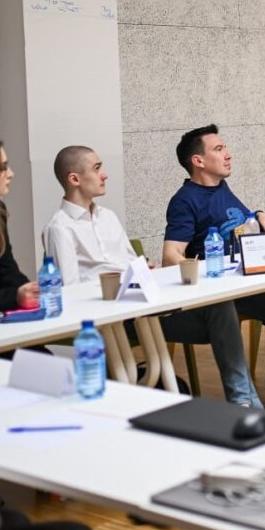
b Interview




ZERO TRUSTS GIVEN





With over a decade in Cyber Security defending businesses against cyberattacks and data breaches, CommSec’s expert team will guide you on your cyber security and data protection journey. Our managed services include our 24/7 SOC, vulnerability scanning and pen testing, professional services including CISO and DPO, and can provide you with a range of 3rd party solutions.
We specialise in bridging compliance gaps with international standards and frameworks including ISO27001, DORA, NIS2, PCI DSS, and more. Partner with us and experience comprehensive, tailored, cost-effective cyber security services.
Partner with CommSec to secure your future.
Contact Us
T: 01 536 7320
E: solutions@commsec.ie
SEE WHAT COMMSEC CAN DO FOR YOU. VISIT


15 THE BUSINESS OF IRISH SME s
COMMSEC.IE
Absence Management

Absence management is arguably one of the greatest challenges for any employer due to its sensitive nature and impact on colleagues and customers, however, it is an essential area of people management that requires a consistent process to be applied. In 2023 absence management was the main topic the ISME HR Team advised our members on. Incredibly, 14% of all the HR queries received last year fell under this category.
The main types of absences managers and business owners have been dealing with are as follows:
Short Term Absence - absence from work for short periods of time which is typically anything from one day up to a month in duration.
Long Term Absence - usually absence of at least four weeks.
Sporadic Absence - where an employee will have a number of days absence, usually a day or two at a time, built up over a long period of time.
Unauthorised Absence - otherwise known as AWOL, when an employee leaves or does not show up for work without consent and without contacting their employer.
Statutory Sick Pay – when is an employee entitled to SSP and when not.

In order to ensure that the employee is supported, it is important to ensure that the ‘Return to Work’ process is managed appropriately. Successful absence management is reliant on strong procedures being implemented in the workplace. Below is an outline of some vital steps your company should consider to help you successfully manage sickness absence in your organisation.
• A clear and comprehensive absence management policy which is communicated and shared with your team is crucial. The recommendation would be that management ensure employees are aware of the company expectations when it comes to reporting absences. Ensure the policy outlines notification and certification requirements, details of sick pay scheme (SSP or a more favourable Company Sick Pay Scheme) and an indication of how the company will approach attendance issues.
• Effective absence management can be achieved if you ensure early intervention by Line Managers. This includes regular communication with the employee during the duration of the absence and on their return to work and ensuring the company is keeping records of the employee’s absence. ISME recommends that companies conduct Return to Work Interviews after every period of sick leave in order to accurately maintain absence records and to act as a deterrent for nonattendance for non genuine reasons.
• A key step to success is to ensure that all Managers are trained in the organisation’s absence policies and procedures and understand the role they are expected to play.
• Maintain regular contact with the absent employee to ensure you stay up to date with their prognosis and potential return to work dates. Remember that the longer someone is off sick, the harder it can be for them to return.
• In certain situations the company may need to consider sourcing expert medical advice from an Occupational Health Practitioner. Actioning this step will be dependent on the details of each case to see if it is appropriate. Consulting a medical practitioner can be extremely beneficial
16 THE BUSINESS OF IRISH SME s
HR Focus



to understand the situation and get professional advice on next steps and how best to move forward.
• When an employee is out on Long Term Absence ISME would suggest you engage with the employee through regular Welfare Meetings. The purpose of these meetings are to assist the company gain a better understanding of the employee’s current health situation, to establish how long they’re likely to be absent from work, how likely they’re going to be able to perform their job role on their return, and what steps can be taken to support them. They are also an excellent process to ascertain if or when the employee’s likely return to work date will be.
In essence, effective Absence Management involves finding a balance between supporting employees with health problems and ensuring that the employer’s business objectives are not compromised. Companies may need to consider the following two points when managing Absence. ISME would advise that you call our helpline for further guidance on these areas:
Reasonable accommodation
make reasonable accommodation for people with disabilities to return to work. The accommodations should be ‘reasonable’ and should not impose a ‘disproportionate burden’ on the company.
Capability
Managing long-term sickness absences can be complicated and multi-faceted. Unfortunately on occasion a business may have to consider termination of employment due to incapability. In these circumstances it is vital that the best practice process is followed and ISME would recommend companies take the time to manage things properly to avoid costly claims or challenges in the future.
The final key point to note would be to ensure the management of absence always adheres to the guidelines set down in the company’s absence policy.
As always, if you require any support with HR or Employment Law you can contact the ISME HR Team on 01 6622755 Option 2 or via HR@ISME.ie. Members also have access to a full suite of HR templates regarding Absence management on the ISME HR Hub .

Are you tired of overcharges on your bank account going unnoticed? Let us handle it for you. Our team specialises in reconstituting bank accounts from offer letters and statements to uncover any discrepancies. We don't stop there – we're dedicated to recovering those overcharges for our clients whenever they occur Plus, we're skilled negotiators when it comes to dealing with vulture funds. Contact us today to learn more.
HR Focus
Bank Check Call 0868200258 or email John at johnodriscoll14@gmail.com

BRUSHSTROKESART SCHOOL/ PHELIM DONFIELD
I’ve always believed that everyone is creative, perhaps even an artist. A selftaught artist, I started selling my paintings door -to- door as a teenager and recognised over many doorstep chats a yearning within many to draw and paint. I established Brushstrokes Art School in Artane back in1992. We are now located in Ongar Village in Dublin 15. Although we are a leisure art school we teach in a professional capacity. Our philosophy is simple, we believe everyone who wishes can learn to draw and paint and in the intervening thirty two years we taught thousands of people to do so.
We have weekly classes for kids and adults and we cater for all levels of ability from beginners to intermediate and advanced. We offer drawing and painting classes in oils, acrylics and watercolour. In our classes currently our youngest student is six years old while our eldest is ninty five years old, with every decade in between well represented. While everyone signs up for ten weeks most stay for years developing their skills. We still have several students attending over twenty five years and two on thirty years. This is because engaging in art and creativity generally is more than just a craft, it is a wonderful therapy and social outlet. For more information please visit www.brushstrokes.ie
As for my own art I paint frequently and continue to sell my own work. Teaching has made me a better painter and painting has made me a better teacher. My work is often eclectic but mostly figurative in nature with paintings of people and animals. To view please visit www.phelimdonfield.com
FEXCO
When Fexco started out in a small office in Killorglin County Kerry in 1981, the company had a simple goal: to provide foreign exchange services. More than four decades later, it has transformed itself into an innovation powerhouse, offering everything from dynamic currency conversion and international payments, to asset finance and strategic business development.
The family-owned company now operates in 29 countries, employs 2,700 staff globally and processes more than €34 billion in transactions a year. Fexco has developed deep expertise in governance and risk management, as well as lasting relationships with international financial institutions and banks.
Fexco’s international payments division helps businesses large and small to save money on cross-border transactions to suppliers, subsidiaries and partners. Fexco provides tailored services to SMEs across a wide range of industries, helping them to manage cash flow, eliminate mundane manual payment processes and navigate the complex world of foreign exchange.
Fexco’s online payments platform PayDirect strengthens internal processes with enterprise-grade financial controls. Protect your funds with segregation of duties rules by configuring who can initiate disbursements, fund accounts, create approval flows, run reports and more.
If your business is ready to move beyond the limitations of traditional banking, then talk to John Barry about how you can get:
• ZERO fees on all cross-border payments and receivables as an ISME member
• NO extra fees for same day payment delivery
• Bank-beating FX rates on all your payments
• Access to a dedicated account manager - no phone carousels – just great support when you need it.
For more information email: jobarry@fexco.com
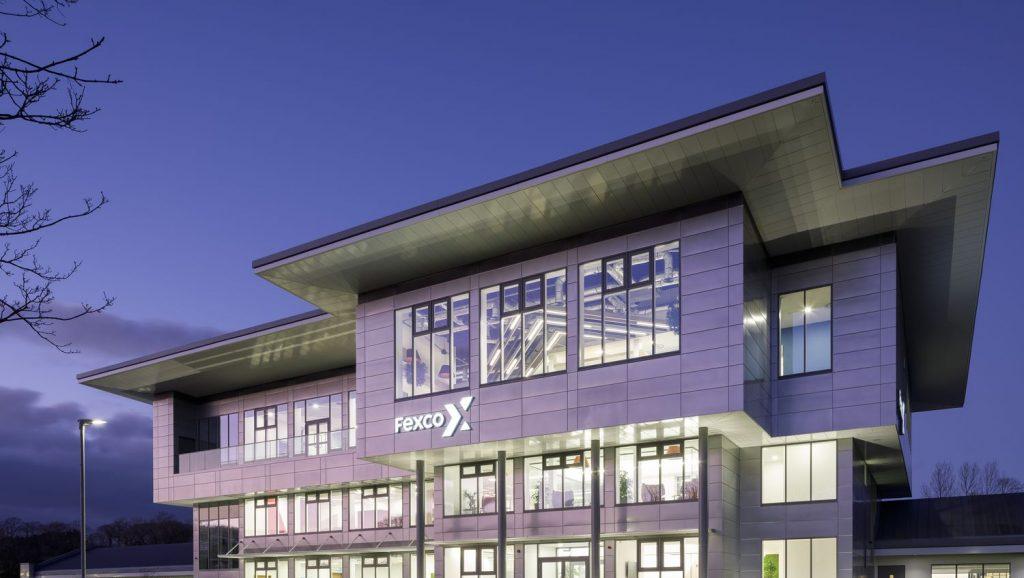
18 THE BUSINESS OF IRISH SME s
Member Focus



New Micro-credential Fee Subsidies Launched

Ireland faces a significant skills shortage at the moment and there is increasing pressure on companies of all sizes to address skills gaps in their organisation to stay competitive. The new micro-credential fee subsidy launched recently by Minister for Further and Higher Education, Research, Innovation and Science, Simon Harris T.D, aims to make upskilling and reskilling opportunities in critical skills areas more accessible and will allow more learners from across Ireland to engage with lifelong learning through microcredentials.
Micro-credentials are short, flexible, quality-assured and enterprise-led courses designed to help learners engage with lifelong learning in a way that fits around their work and personal commitments. On average micro-credentials range in length from 6-12 weeks and are offered either 100% online, hybrid or inperson.
The new 50% – 80% fee subsidy is available on over 300 micro-credential courses offered by MicroCreds partner universities (Dublin City University, Maynooth University, Trinity College Dublin, University College Cork, University College Dublin, University of Galway and University of Limerick). The courses on offer cover a range of key skills in areas including sustainability, AI, digital transformation, data programming, digital disruption, entrepreneurship, EDI, communications and Fintech to name just a few.
Commenting on the funding, the IUA MicroCreds Project Lead Jools O’Connor said: “MicroCreds courses offer a fantastic opportunity to upskill and engage in lifelong learning. Micro-credentials make education easier and more accessible for people with busy lifestyles and helps them commit to learning in a flexible way that suits their personal and work commitments. We encourage anyone looking to address a skills gap to visit MicroCreds.ie to explore the wide range of micro-credentials from our seven partner universities.”

19 THE BUSINESS OF IRISH SME s Learning Focus
“Alexa, help me drive traffic to my website”
Ciara Whooley, founder CNOCII,

How Small Irish Businesses Can Harness Voice Search Optimisation
Small businesses in Ireland are constantly seeking innovative ways to grow their online presence and attract more customers to their websites. One powerful strategy that often goes overlooked is voice search optimisation. As voice-enabled devices like smartphones, smart speakers, and virtual assistants become increasingly part of consumers’ daily lives, optimising for voice search can significantly boost a business’s visibility and drive valuable traffic to websites.
What is Voice Search Optimisation?
Voice search optimisation involves tailoring your online content to better align with the way people speak when using voice-enabled devices to search for information. Unlike traditional text-based searches, which tend to be more concise and keyword-focused, voice searches are typically longer and more conversational in nature. For instance, someone might type “best coffee shops Dublin” into a search engine, but when using voice search, they might ask, “What are the best coffee shops near me in Dublin?”
So, how do I optimise website text for voice search?
1. Natural Language Keywords: Instead of targeting short, specific keywords, focus on incorporating longtail keywords and phrases that mirror the way people naturally speak. Conduct research to identify common voice search queries related to your industry or niche, and integrate these phrases into your website content.
2. Local SEO: Voice searches often have a strong local intent, with users seeking nearby businesses or services. Ensure that your business’s name, address, and phone number are consistent across online directories and listings. Additionally, create locationspecific content and optimise your website for local
keywords to improve your chances of appearing in voice search results for local queries.
3. Featured Snippets: Aim to secure featured snippet positions in search engine results pages, as these snippets are often read aloud by voice assistants when responding to voice queries. Structure your content in a clear, concise format that directly addresses common questions or topics related to your business.
4. Mobile-Friendly Design: Since the majority of voice searches are performed on mobile devices, it’s crucial to ensure that your website is mobile-friendly and loads quickly on smartphones and tablets.
For small businesses in Ireland, voice search optimisation offers numerous benefits such as increased visibility and competitive advantage. As this technology is still relatively underutilised by many businesses, early adopters can gain a competitive edge in their industry by establishing a strong presence in search results before their competitors catch on.
As well as providing benefits to you, by focusing on natural language keywords and providing concise, relevant answers to common queries, businesses can deliver a more satisfying user experience, ultimately building trust and loyalty with their audience.
Voice search optimisation presents a valuable opportunity for small businesses in Ireland to boost their online visibility, attract more customers, and stay ahead of the competition. By understanding the unique nuances of voice search and implementing targeted strategies, businesses can position themselves for success in an increasingly voice-driven digital landscape.
For more digital tips or to get help implementing your marketing strategy contact Ciara @cnocii.ie or visit www.cnocii.ie .
THE BUSINESS OF IRISH SME s 20 Marketing Focus



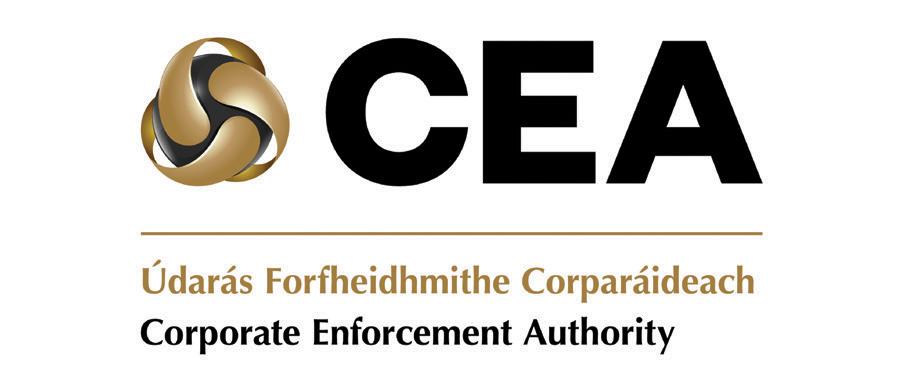


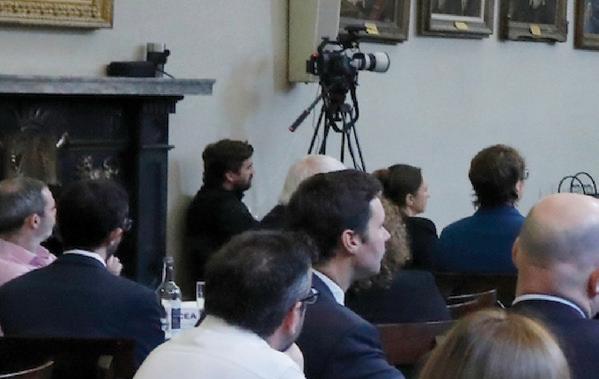




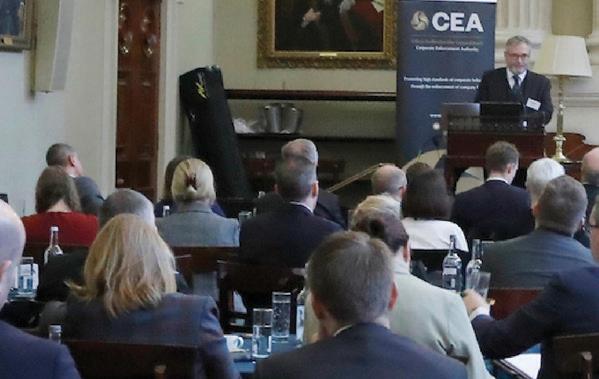

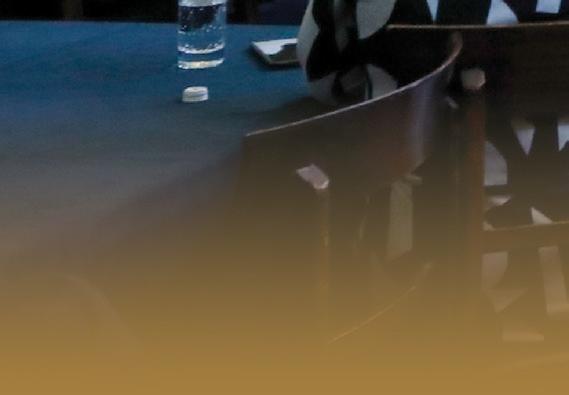
info@cea.gov.ie
www.cea.gov.ie

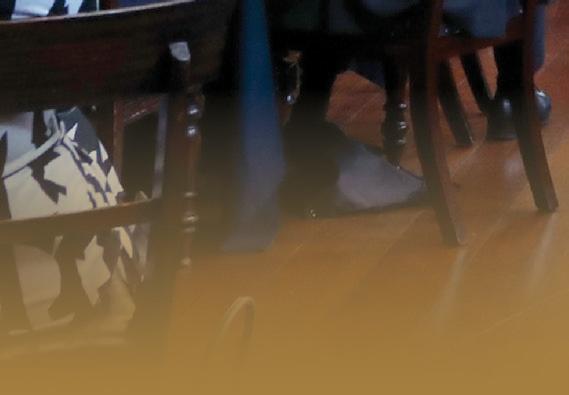
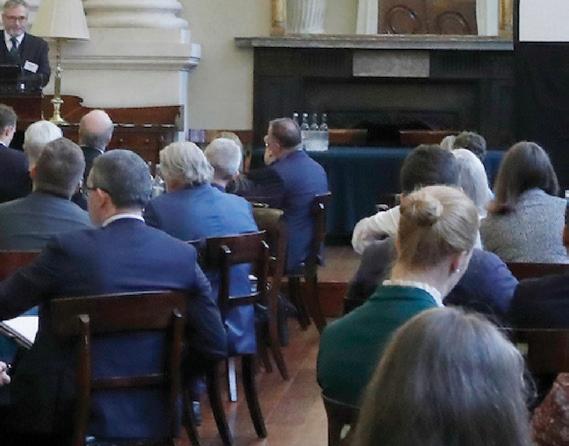
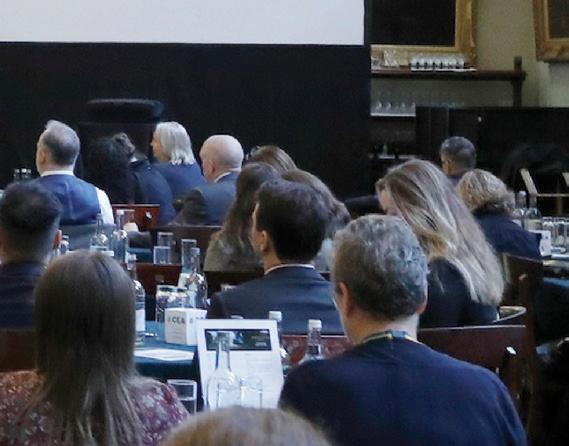


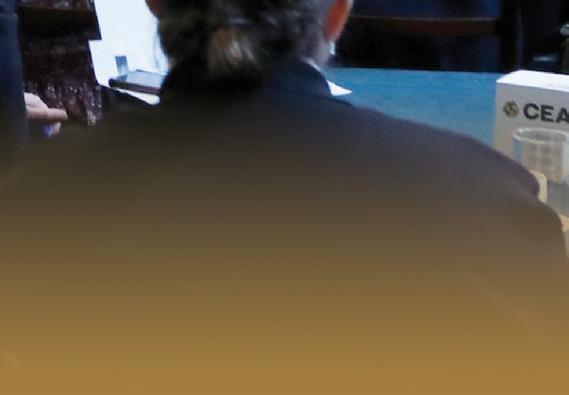

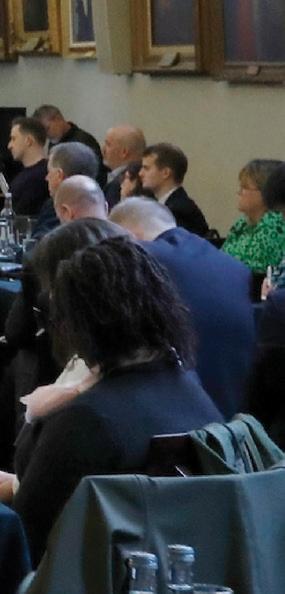
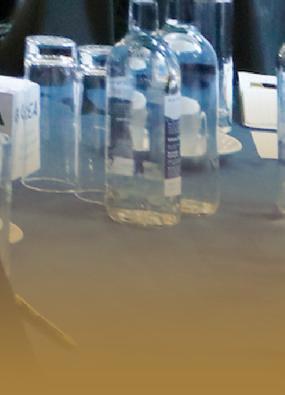
Tabhair cuairt ar ár suíomh gréasáin agus lean muid ar na meáinshóisialta le haghaidh eolas maidir leis an méid seo a leanas:
• do chuid dualgas agus oibleagáidí mar stiúrthóir na cuideachta;
• do chuid cearta mar bhall den chuideachta / mar scairshealbhóir;
• conas gearán, léiriú imní nó nochtadh cosanta a chur faoinár mbráid; agus
• deiseanna gairme linn atá ar na bacáin.
AG CUR ARDCHAIGHDEÁIN D’IOMPAR CORPARÁIDEACH CHUN CINN TRÍ DHLÍ NA GCUIDEACHTAÍ A FHORFHEIDHMIÚ.
Visit our website and follow us on social media for information on:
• your duties and obligations as a company director;
• your rights as a company member / shareholder;
• how to submit a complaint, expression of concern or protected disclosure to us; and
• upcoming career opportunities with us.
THE BUSINESS OF IRISH SME s
PROMOTING HIGH STANDARDS OF CORPORATE BEHAVIOUR THROUGH THE ENFORCEMENT OF COMPANY LAW.
Protecting Vulnerable Workers
Dr Joan Cahill & Alex Shortt, Health and Safety Authority

Vulnerable Workers are people who may be particularly sensitive or over exposed to potential health and safety risks in comparison to the general working population.
Every person has the right to a safe workplace where any risks to their health and safety are properly controlled. Some people are more vulnerable to occupational safety and health (OSH) risks due to a variety of personal and job factors. It is important that employers recognize these vulnerabilities and take steps to protect their employees from occupational safety and health hazards.
What is a Vulnerable Worker?
The European Agency for Safety and Health at Work defines vulnerable workers as ‘certain groups who may be more at risk from occupational accidents or ill-health than others or those that have special considerations that may need to be taken account of in a health and safety context’ (2022).
A person may have several different vulnerabilities linked to different personal and job factors. People can be vulnerable before they start work, or they may become vulnerable during their working life. All people reflect a spectrum of vulnerability – with some workers having higher or lower levels of vulnerability.
Examples of vulnerable workers include:
• Young people at work*
• New and expectant mothers*
• Night and Shift workers*
• Older workers
• Workers who are new to the job (short tenure workers)
• Inexperienced workers including apprentices.
• Migrant Workers
• Sensitive risk groups*
• Gig/platform workers
• Agency and temporary workers
• Workers with disabilities
• Workers with underlying health issues
• Lone workers
• Low qualified workers
• Workers for whom English is not a first language.
Identifying Vulnerability
Vulnerable workers are more susceptible to injury or ill health because of specific personal or job factors.
1. Personal factors include biological, social, and cultural characteristics.
2. Job factors are associated with the person’s status in the enterprise and their work contract, the nature of the work, and certain characteristics of the organisational they work for.
A combination of personal and job factors can lead to specific risk factors, that increase the chance of unsafe behaviour, occupational injury, and occupational illness.
Employers and managers should familiarize themselves with the different personal and job factors which can create ‘vulnerability’ and take steps to protect their employees from occupational safety and health hazards.


22 Health & Safety Focus
Key questions to ask include the following:
• Are there vulnerable workers in my organisation?
• What job or personal factors contribute to this vulnerability?
• What workers have higher levels of vulnerability?
• What can I do as an employer/manager/ supervisor to protect the vulnerable workers in my organisation?
• Who do I need to consult with?
• What can I do to promote reporting for vulnerable workers (including migrant workers)?
Risk Assessment & The Law
Employees, whether they are Irish nationals or migrant workers, have equal rights under Irish health and safety law. Temporary or causal workers, whether they are Irish nationals or migrants, have equal rights under Irish health and safety law as full time permanent employees. Health and safety legislation requires the employer to assess the risks to safety and health at work for all workers, to avoid workplace accident, injury, and ill health.
Employers are required to develop a safety statement detailing how the safety, health, and welfare of employees (including vulnerable workers) is protected. The safety statement includes all risk assessments and should be produced in consultation with employees and their representatives.
Further Information
• For more information on vulnerable workers and resources information provided by the HSA, please see the following:
• Vulnerable workers topic page (https://www.hsa.ie/eng/topics/ vulnerable_workers/vulnerable_workers.html).
• ‘Protecting Vulnerable Workers’ - information sheet for employers/managers/supervisors (https://www.hsa.ie/eng/ publications_and_forms/publications/safety_and_health_ management/vulnerable_workers_information_sheet_2024. pdf)
• ‘Protecting Vulnerable Workers’ – short course on hsalearning. ie (https://www.hsa.ie/eng/topics/vulnerable_workers/ vulnerable_workers.html)

Kilbaha Gallery The very best of contemporary Irish Art www.kilbahagallery.com ‘Original Irish Art - The Corporate Choice’
Preparing Businesses for a New Era in Cybersecurity
Irish businesses are grappling with a heightened cybersecurity landscape, driven by emerging EU and domestic regulations, the intensifying risks posed by AI, and the escalating sophistication of cyber threats. To help businesses navigate these challenges, CommSec’s CEO David McNamara shares his expertise in the ever-evolving cybersecurity domain and provides practical strategies to enhance defences.
The Inevitability of Cyberattacks
The unfortunate truth is that cyberattacks are becoming increasingly common, and even the most vigilant organisations can fall victim. A recent study by Hiscox research finds 71% of Irish businesses suffered a cyberattack in the last year, rising for the third consecutive year. And there is a financial cost to recovery from cyber-attacks, however, the real damage can extend beyond financial losses to include reputational damage, lost productivity, and legal liabilities.
Navigating the Regulatory Landscape
In addition to the financial and operational risks, businesses are also facing increasing pressure from regulators to improve their cybersecurity posture. Regulations, such as the National Cyber Security Centre’s Baseline Standards (NCSC), the Network and Information Systems Directive (NIS2), and DORA for Financial Institutions, will further tighten the cybersecurity requirements for SMEs.
According to David McNamara, “The new regulations extend beyond larger organisations and impact all businesses that provide services to larger organisations via the supply chain. In essence, if you deal with an organisations such as a government body or a bank, then you must implement a high level of cyber security measures or risk losing their business.”
A New Standard for Irish SMEs
David is currently the Vice-Chair of Cyber Ireland’s SMB committee and is working towards a new Irish cybersecurity standard. “We are in the final stages of launching the CI4 Standard, a comprehensive framework developed in collaboration with Cyber Ireland, the NCSC, and the insurance industry. The standard, which is similar to Cyber Essentials in the UK, will empower Irish businesses to safeguard their operations from cyberattacks, minimise the disruptive impact, and insure against a breach.”
Growing Complexity of the Threat Landscape
The cybersecurity threat landscape is becoming increasingly complex and sophisticated, with new threats emerging all the time. One of the most significant challenges is the rise of artificial intelligence (AI), which is being used to develop increasingly sophisticated cyberattacks. David comments, “AI is also a threat from a GDPR point of view, where employees maybe sharing sensitive company information unknowingly with a third party.” Alarmingly, Ransomware is still the number one threat globally and can be costly for businesses to recover from.

Investing in Cybersecurity
To address these challenges, CommSec suggest businesses need to adopt a comprehensive cybersecurity strategy that includes a variety of measures, including:
• Implementing strong security controls, such as firewalls, intrusion detection systems, and antivirus software on all company devices.
• Having a robust Email Security gateway in place as it is estimated that 90% of successful cyber attacks start with email phishing.
• Educating employees about cybersecurity risks and best practices such as MFA (multi-factor authentication) and password hygiene.
• Carrying out continuous security awareness campaigns with employees on cyber risks such as phishing, malware and ransomware.
• Running regular security software updates and patching security vulnerabilities.
Cybersecurity is no longer an afterthought for Irish businesses; it is now a necessity.
Find out more about CommSec’s range of cybersecurity managed services, visit www.commsec.ie.
24 THE BUSINESS OF IRISH SME s Technology Focus



The Importance of Upskilling Your Team this year.

In the ever-evolving landscape of business, staying ahead of the curve is not just an advantage but a necessity. As we step into 2024, the need for upskilling has become more pronounced than ever before. Recognising the importance of continuous learning and development, ISME Skillnet stands at the forefront, providing businesses with the tools and resources to empower their teams.
ISME Skillnet understands the pivotal role that upskilling plays in fostering innovation, increasing productivity, and ensuring long-term success for businesses. Here, we delve into the significance of upskilling your team in 2024 and how ISME Skillnet can be your strategic partner in this transformative journey by developing bespoke training packages for your teams and also creating short training courses that appeal to a large cross section of industries.
2023 was an exceptionally busy year in ISME Skillnet, below we explore the key trends that will shape the training sector in the coming year.
The global shift towards remote work has accelerated the adoption of virtual training solutions. In 2024, organisations will continue to embrace remote and hybrid training models, allowing employees to access training materials from anywhere in the world. This flexibility not only accommodates diverse work arrangements but also opens up new opportunities for collaboration and knowledge-sharing on a global scale.
Trainers are recognising that one-size-fits-all training models are becoming outdated, there is definitely a growing emphasis on personalised learning paths. Training programmes will increasingly be tailored to individual needs, preferences, and skill gaps. Artificial intelligence (AI) algorithms may even play a role in analysing learner data to deliver customised content, ensuring that each participant receives a targeted and effective training experience.
Last year we began to see trainers using gamification while delivering their training with us. Gamification
is a powerful tool for enhancing engagement and motivation in the training sector. We would expect to see an increase in the integration of game elements, such as points, badges, and leader boards, into training programmes. This approach not only makes learning more enjoyable but also fosters healthy competition among learners, driving them to excel and complete training programmes with enthusiasm.
While technical skills remain crucial, the importance of soft skills is gaining prominence. This year we suspect there will be a heightened focus on developing skills such as communication, critical thinking, and adaptability. Training programs will aim to cultivate a well-rounded skill set in employees, preparing them for the challenges of a rapidly evolving professional landscape. This March we will run two such courses ‘Effective Telephone Sales’ and ’Business & Email Etiquette’. In May we will also run our popular ‘Customer Service and Complaints Handling’ course. All of these courses can be viewed on the newly launched www.ismeskillnet.ie.
ISME Skillnet, with its commitment to learning and development, stands ready to be your partner on this transformative journey, ensuring that your team is equipped with the skills and knowledge needed to thrive in the years to come. Embrace the future with confidence, empower your team with ISME Skillnet, and lead your business to new heights.
Take a look at our new website www.ismeskillnet.ie to explore all upcoming courses.

25 Learning Focus
Adam Weatherley, Learning & Development Manager, ISME
Employee engagement takes centre stage in a new era of business
SME’s face a number of challenges that pose barriers to their survival or growth; however there’s one overlooked asset affecting every important aspect of business that owners can leverage to alleviate many of their difficulties. That is relationships.
Employee Engagement has long been accepted in the corporate world as central to building a workforce that is highly productive, motivated and loyal.
Unlike employee wellbeing, which refers to employees’ individual physical, mental and emotional happiness; engagement can be defined as the level of mental and emotional connection employees feel toward the organisation they work for, the people they work with and the work they do.
Engaged employees are more resourceful, innovative and customer-focused. They contribute to a positive work environment, help to attract and retain other talent and act as ambassadors for their employer. All of these factors drive success and growth because, ultimately, happy people do better and that’s good for business.
In a market where SMEs are battling to compete with the salaries and benefits of their corporate counterparts, SME leaders would do well to be intentional about making employees feel connected and valued.
Deloitte’s 2024 Global Human Capital Trends Report states, ‘the degree to which the organisation creates value for people as human beings, leaving them with greater health and well-being, stronger skills and greater employability, good jobs,1 opportunities for advancement, more equity, and heightened feelings of belonging and purpose—can drive not only better human outcomes, but better business outcomes, too, in a mutually reinforcing cycle.’
What are the indicators of disengaged staff?
It stands to reason that high staff turnover and absenteeism are distinct symptoms of employees for who an inner motivation to show up and work hard has not been ignited.

Post pandemic the phenomenon of ‘quiet quitting’, or chronic disengagement, has gained more traction, in particular among GenZ and Millenials. In a highly connected world, these groups value purpose and balance over financial reward. The rise in quiet quitting since 2020 has also been aided by a move to hybrid or remote working, which has further heightened the need for engagement.
Measuring how engaged employees are is a more complicated task requiring a number of metrics. However, Gallup’s employee engagement indicator questions, gathered from interviews with more than 1 million employees, is a good place for employers to start. The survey poses 12 questions around key themes including:
• Knowing what’s expected of you in the workplace
• Receiving recognition
• Having friendships at work
• Understanding how your role contributes to the organisation’s overall goals
• Your learning and development being supported.
How do you achieve higher staff engagement?
The answer is to build genuine, reciprocal relationships with employees within a framework of shared values. By establishing a set of core principals, closely aligned with business goals, and collaborating with employees to agree the behaviours and actions that define these values, employers give workers agency to decide how they work and agree on basic expectations.
It requires a shift towards collaborative leadership and a move away from the industrial era mindset which viewed workers as a box on the organisational chart, towards a model where success is driven by human performance.
26 THE BUSINESS OF IRISH SME s News
Business Focus
Rita Hoy, Business Coach



Credit where it’s due.
Having difficulty getting a new business loan or restructuring your existing debt with your bank?
Established by the Minister for Finance, Credit Review is here to help.
Talk to the credit experts today on 0818 211 789 or visit creditreview.ie
27 THE BUSINESS OF IRISH SME s News
The Digital Projects
Rhealyn Mugri, MSc
Rhealyn Mugri isn’t just an innovation and growth strategist, she’s a champion for small Irish service businesses battling understaffing and the whirlwind of constant change. After seeing firsthand how these struggles stifle growth, she founded ‘The Digital Projects’ with a bold mission: to help businesses do more with less.
Her approach isn’t a magic wand, but it might feel like it. With a Master’s in Leadership, Innovation, and Technology and a relentless drive to find smarter solutions, Rhealyn tackles a business’s marketing, sales, and customer loyalty systems – and automates them. This frees up precious time and minimises the burden of constant employee churn.
Don’t mistake automation for a cold, impersonal touch. Rhealyn understands the heart of Irish businesses and maps out unique customer journeys. She digs deep into each unique challenge and tailors solutions that deliver results without sacrificing that personal connection.
Think of her as your growth accelerator, ready to streamline the chaos and get you back to focusing on what you love. If you’re an Irish business owner ready to break free from staffing struggles and unlock your true potential, The Digital Projects is here to help.
Reach out and discover how Rhealyn’s passion for innovation can transform your business journey with automation.

Email: rhealyn@thedigitalprojects.com
Phone: 01-254-8888
Mobile: 087-1521-558
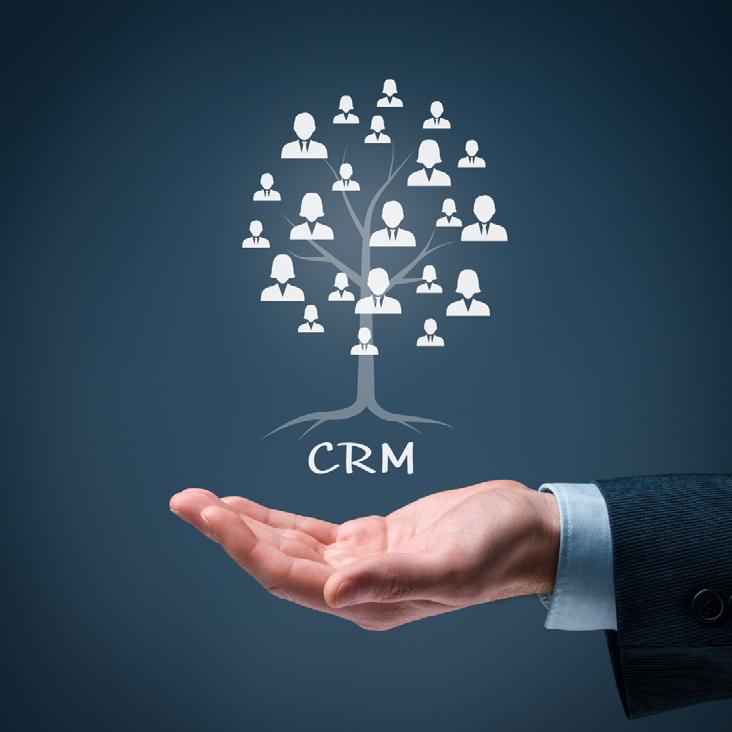



28
Member Focus Find out how with the SEAI Energy Academy. Free online training with Ireland’s leading experts in energy efficiency. Reduce your use. Sign up at seai.ie/energyacademy on business energy costs? Looking to save Register online #ReduceYourUse 6458_SEAI_BUSINESS_ENERGY_AD_3X9IN_LS.indd 1 24/11/2022 14:43


Green skills for a sustainable future
• Develop new skills in your team
• Green your business for cost savings, competitiveness and profitability
• Access highly subsidised flexible training
boost skills
– boost business
Contact your local Education and Training Board or visit skillstoadvance.ie

learning works
Starting Off Your Energy Efficiency Journey
Article from SEAI

At SEAI we understand that starting off on the energy efficiency journey can be quite daunting for businesses. That is why we recommend that businesses take stepby-step approach to energy efficiency.
1. Step 1 is to understand your energy use, and our Energy Academy is the perfect resource for that.
2. Step 2 is to develop an energy action plan, which is where our “Introduction to Energy Management” workshop comes in handy.
3. Step 3 is to complete an energy audit, so if you’re spending more than €10,000 a year on energy you can avail of a €2,000 voucher through our Support Scheme for Energy Audits.
4. Step 4 is to invest in energy efficiency and renewable measures for which grants may be available.
5. Step 5 is to continue to monitor, track and report on your energy use, using the tools and techniques acquired in energy management training.
The SEAI Energy Academy is an online e-learning platform designed to help businesses lower their energy bills by as much as 10% through shared awareness of energy efficiency and behaviour change. It’s the first step for any business starting their energy efficiency journey. Upskilling your team on energy in the workplace helps to create a common understanding of why energy efficiency is important and what you can do today to make a difference. To join the SEAI Energy Academy visit https://www.seai.ie/energyacademy/
An energy action plan will help you to improve your business’s energy performance through basic techniques and steps. SEAI’s “Introduction to Energy Management” workshop will teach you how to develop and implement an effective energy action plan. These sessions, run by experienced trainers, will help you:
• Understand and commit to energy management.
• Create an energy action plan outlining your business’s energy targets
• Take action and start reducing your energy use
• Review your performance and results
Check out the Ticker Tailor for the next training.
SEAI’s support scheme for energy audits (SSEA) has been designed to help Ireland’s SMEs to take charge of their energy use. The scheme provides a €2,000 voucher towards the cost of a high-quality energy audit which, in most cases, this will cover the full cost of the audit.
With SSEA, a SEAI Registered Energy Auditor will complete your energy audit. Once the audit is complete, you’ll receive an easy-to-understand report which sets out:
• An overview of how your business is currently using energy
• Opportunities to save energy and reduce carbon emissions
• Costs and return on investment for identified energy saving opportunities
• Suitability for solar PV and renewable heat solutions
• Relevant financial and non-financial SEAI supports that can turn you’re audit into action!
How will a SEAI energy audit benefit my business?
An SEAI energy audit is one of the first steps a business can take to save money, save energy, enhance their brand image and future proof their operations. As well as helping you to understand how energy is used in your business, a SEAI energy audit identifies ways in which your business can become more energy efficient and reduce its climate impact.
Is my business eligible?
If you are a tax compliant SME, registered in the Republic of Ireland and spending more than €10,000 per year on your energy bills then it is likely that you are eligible for the scheme. Check out the SEAI website for full details on the eligibility criteria.
If you want to know more about the support scheme for energy audits or other ways SEAI is helping SMEs to deliver climate action, check out our website or get in touch with us on business@seai.ie
31 THE BUSINESS OF IRISH SME s Energy Focus
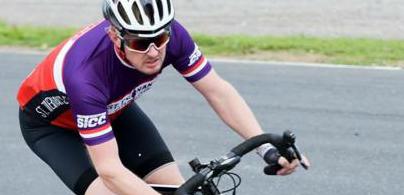
Another side of...
Damien Heffernan
Marketing & Partnerships, ISME
What interests/hobbies do you have outside of work?
I play a little bit of golf (badly!) But my main sport is cycling. I’m a member of St. Tiernan’s Cycling Club based in South Dublin. Most of the rest of my spare time is spent taxiing my 3 kids around and standing on the sidelines of GAA, Rugby and Hockey pitches.
Why do these hobbies interest you?
I started cycling competitively in my early teens, and took it back up when I hit my mid-30’s. I enjoy getting out in the countryside – I am fortunate to live close to the foothills of the Dublin mountains. Over the years I have travelled the length & breadth of the country to bike races and events, and have been lucky enough to have travelled in Italy, France and Spain on cycling trips. I gave up racing in 2020, in part due to the lockdown, but also following a few bad crashes over the years. In my late 40’s the body doesn’t bounce back up off the road as well as it used to!
Do you have an interesting story about your hobby?
In 2015 I took part in the Race Around Ireland, a nonstop ultra-marathon cycling event of over 2,200km. I competed on an 8 person mixed team and we won our category, completing the course in 73hrs, 59 minutes – a record at the time!

Are there any hobbies or challenges would you like to try?
I think at my stage in life I’ve tried most hobbies, but I have resolved to take up Padel in 2024 – everyone else I know seems to be doing it, so I’ll have to give it a go.
Talk to us about the work you do at ISME?
I’m in charge of Marketing & Partnerships at ISME. I work with our partners to provide member benefits which help to add value to our membership proposition, as well as drive additional revenue sources for ISME through sponsorship and advertising. I also look after our events, including our roadshows which provide a valuable connection point for our members across the country.
How important do you think it is to have an interest outside work and how do you think it can benefit your work?
It’s very important to be able to unwind & clear your head after a busy day/week in the office. I’ve made many business contacts over the years through various outside interests – people tend to find it easier to do business with others who they know and trust from outside work.
Do you think this balance is something individuals and particularly employers need in their life to have a successful business?
I know many SME owners in particular can have difficulty in switching off outside normal office hours. While this can be a positive, and indeed necessary trait at times, it’s definitely unhealthy and counterproductive to be constantly “on”. Many of the most successful people I know possess the ability to manage the need to work long hours to drive their business forward, coupled with an ability to unwind completely when circumstances allow. This results in them being able to take some downtime and return to their business refreshed, and even more productive.
32
A series that highlights the lives and interests of ISME members and staff. In this edition, The bISME talks to Damien Heffernan, ISME’s Marketing & Partnerships Manager about his hobbies and work.































 John Mulleady, AiP Thermoform
John Mulleady, AiP Thermoform



 Neil McDonnell, Chief Executive, ISME
Neil McDonnell, Chief Executive, ISME












































































